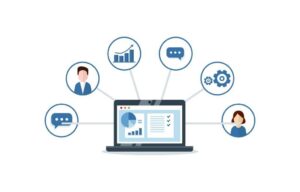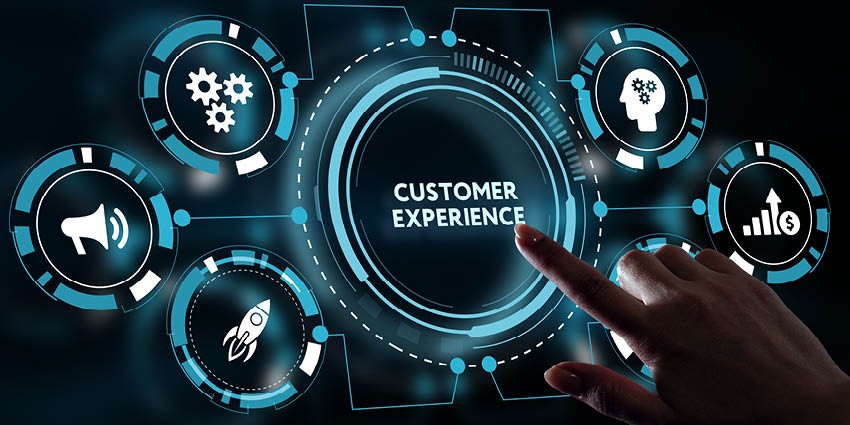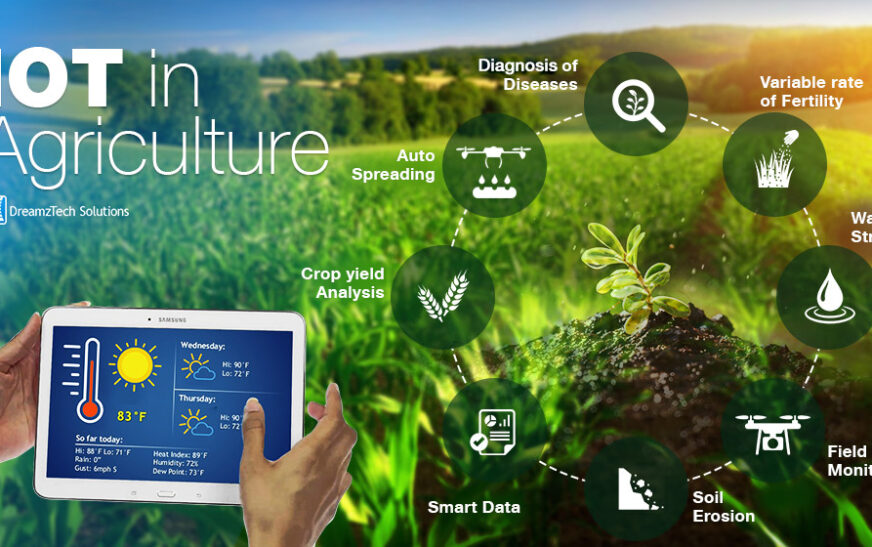Introduction to Big Data and its Impact on Businesses
In today’s fast-paced digital world, businesses are continually seeking innovative ways to stand out. One powerful tool that has emerged at the forefront is big data. With its ability to collect, analyze, and interpret massive volumes of information, big data reshapes how companies understand their customers.
Imagine walking into a store and being greeted by name while receiving personalized recommendations tailored just for you. This isn’t magic; it’s the role of big data in personalizing customer experiences. By harnessing this wealth of information, businesses can create unique interactions that resonate with individual preferences and needs.
As consumers become more discerning about who they engage with, the importance of personalization becomes even clearer. Understanding what makes your audience tick is crucial for building lasting relationships and driving loyalty. Let’s dive deeper into how big data empowers companies to tailor experiences like never before.
Understanding Customer Personalization
 Customer personalization is all about creating unique experiences tailored to individual preferences. It shifts the focus from a one-size-fits-all approach to understanding what each customer truly desires.
Customer personalization is all about creating unique experiences tailored to individual preferences. It shifts the focus from a one-size-fits-all approach to understanding what each customer truly desires.
At its core, personalization involves collecting data on behaviors, interests, and past interactions. This information helps businesses craft messages that resonate with each person.
Customers today expect brands to know their needs without them having to say a word. Whether it’s personalized product recommendations or customized email communications, every touchpoint matters.
When executed effectively, personalization can enhance loyalty and drive engagement. Customers feel valued when they receive relevant offers that align with their preferences.
In this digital age, mastering the art of personalization is crucial for staying competitive in crowded markets. It’s no longer just an option; it’s a necessity for building lasting relationships with customers.
Utilizing Big Data for Personalization
 Big data offers businesses unparalleled insights into customer behavior and preferences. By harnessing this information, companies can create tailored experiences that resonate deeply with their audience.
Big data offers businesses unparalleled insights into customer behavior and preferences. By harnessing this information, companies can create tailored experiences that resonate deeply with their audience.
Advanced analytics tools sift through vast amounts of data to identify patterns. These insights help brands understand what customers want before they even ask for it.
Real-time data processing enables organizations to adjust their offerings instantly. For example, if a customer browses certain products online, personalized recommendations can appear immediately.
Segmentation is another powerful strategy. Businesses can categorize users based on demographics or buying habits, allowing them to craft targeted marketing campaigns that feel personal and relevant.
Moreover, leveraging big data in personalization enhances engagement across channels. Whether it’s email marketing or social media outreach, consistency in messaging fosters trust and loyalty among consumers.
Benefits of Personalized Customer Experiences
Personalized customer experiences create a deeper connection between brands and consumers. When businesses tailor their offerings, customers feel valued and understood. This fosters loyalty that can significantly boost retention rates.
Moreover, personalization enhances the overall shopping journey. Customers are more likely to engage with content that resonates with their preferences. This leads to increased interaction and higher conversion rates.
Additionally, personalized experiences often result in upselling opportunities. When recommendations align closely with customer interests, it creates a seamless path for discovering new products or services.
Data-driven insights allow companies to anticipate needs before they arise. By understanding behavior patterns, businesses can provide timely solutions, enhancing satisfaction levels immensely.
The ripple effect of these benefits extends beyond immediate sales—customers become advocates. Satisfied individuals share positive experiences within their networks, driving organic growth through word-of-mouth marketing.
Challenges and Limitations of Big Data in Personalization
Big data offers immense opportunities for personalization, but it also comes with its own set of challenges. One significant hurdle is data quality. Inaccurate or incomplete datasets can lead to misguided insights and ineffective strategies.
Another issue lies in the complexity of integrating various data sources. Businesses often struggle to unify information from different platforms, which dilutes the effectiveness of personalized efforts.
Privacy concerns present a major limitation as well. Consumers are increasingly wary about how their data is used, leading to stricter regulations and demands for transparency.
Moreover, there’s the risk of over-personalization. When brands push too far into tailoring experiences, they may alienate customers who feel their privacy has been invaded or that they’re being monitored excessively.
Not all organizations have the resources needed to analyze vast amounts of data effectively. This disparity can create a gap between businesses able to leverage big data and those left behind.
Real-World Examples of Successful Implementation
Amazon is a prime example of leveraging big data for personalization. By analyzing customer browsing history and purchase patterns, they recommend products tailored to individual preferences. This approach has significantly boosted sales and customer loyalty.
Netflix also excels in using data analytics to enhance user experiences. Their algorithm tracks viewing habits and suggests shows or movies based on personal tastes. This level of customization keeps subscribers engaged and reduces churn rates.
Sephora stands out with its app that offers personalized product recommendations through augmented reality features. Customers can see how makeup looks virtually before making a purchase, creating an interactive shopping experience.
Starbucks uses data from its rewards program to customize promotions and offers for each member. By understanding consumer behavior, they improve customer satisfaction while driving repeat business through targeted marketing efforts.
These brands highlight the transformative power of big data in crafting unique customer journeys across various industries.
Ethical Considerations for Using Big Data in Personalization
As businesses increasingly rely on big data to personalize customer experiences, ethical considerations come to the forefront. Privacy remains a significant concern. Consumers are more aware than ever of how their data is collected and used.
Transparency is crucial. Brands must communicate clearly about what data they gather and how it contributes to personalization efforts. This builds trust with customers who may otherwise feel uneasy about sharing personal information.
Data security also plays an essential role in ethical practices. Businesses should implement robust measures to protect sensitive information from breaches or leaks, ensuring customer confidence in their operations.
Moreover, it’s vital to avoid biases that can arise when analyzing big data trends. Ensuring fairness means recognizing and addressing any potential inequalities within datasets so that no group is unfairly targeted or neglected in personalized offerings.
The Future of Personalized Customer Experiences
The future of personalized customer experiences is set to be transformative. As technology advances, businesses will harness even more sophisticated algorithms to anticipate consumer needs.
Artificial Intelligence will play a key role in turning vast amounts of data into actionable insights. This means brands can tailor their offerings not just based on past behavior but also by predicting future preferences.
Moreover, the integration of augmented reality could create interactive and immersive shopping experiences. Imagine trying on clothes virtually or visualizing how furniture fits in your space before making a purchase.
Privacy concerns are likely to shape this evolution as well. Striking a balance between personalization and data security will be crucial for maintaining trust with consumers.
As we look ahead, collaboration across industries might foster innovation in delivering customized solutions that resonate deeply with individual customers’ desires and expectations.
Conclusion
The landscape of customer experiences is rapidly evolving thanks to the transformative power of big data. As businesses harness vast amounts of information, they can tailor offerings in a way that resonates deeply with individual preferences and behaviors. This shift towards personalization creates meaningful interactions, enhances engagement, and drives loyalty.
However, navigating this terrain comes with its own set of challenges and ethical considerations. Companies must strike a balance between leveraging data for personalized services while respecting customer privacy. Transparency in how data is collected and used will play a crucial role in building trust.
Looking ahead, the role of big data in personalizing customer experiences promises to become even more sophisticated. Advances in artificial intelligence and machine learning will enable deeper insights into consumer behavior. Businesses that prioritize these strategies stand to gain significant advantages.
As companies continue to embrace big data’s potential for personalization, they’ll shape not just transactions but lasting relationships with their customers.








